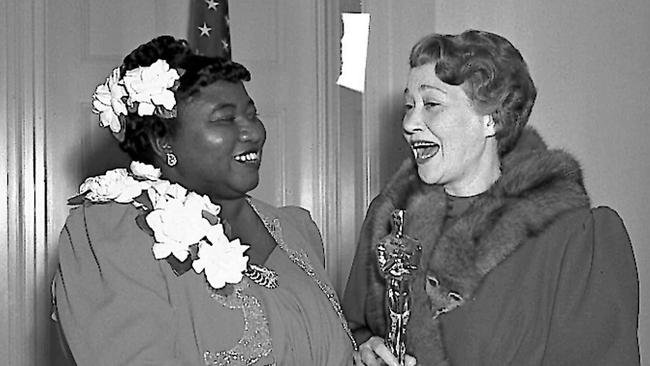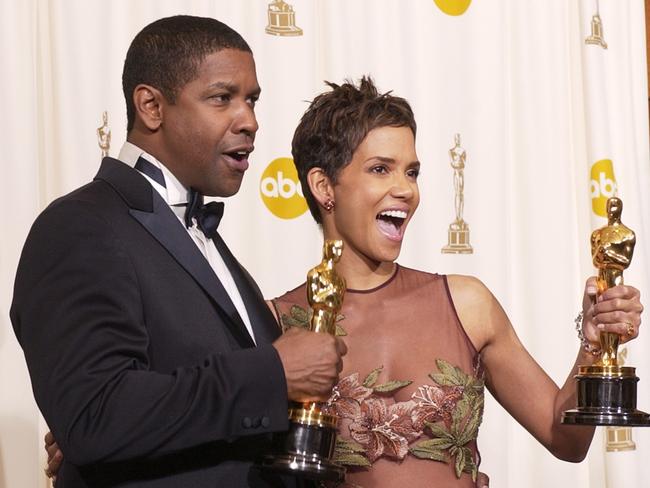African-Americans sidelined in the race for Oscar
Actors say it’s a long walk from the seat to the stage to collect an Oscar. For Hattie McDaniel in 1940 it was even longer.

Actors say it’s a long walk from the seat to the stage to collect an Oscar.
For Hattie McDaniel in 1940 it was even longer, as she was confined to a segregated table at the end of the room. She was nowhere near her Gone With the Wind co-stars, Vivien Leigh and Clark Gable, who were front and centre, in the spotlights.
Yet the fact McDaniel was there at all was only due to the powerful producer of the film, David Selznick, calling in a favour. He asked the venue, the Ambassador Hotel in Los Angeles, which had a “no blacks” policy, to make an exception. His wish was granted, with certain limitations. McDaniel, then 47, said in her acceptance speech that she hoped she would “always be a credit to my race and the motion picture industry”. Then she returned to the edge of the room.
In this context, the Academy of Motion Picture Arts and Sciences can be seen as ahead of its time.
McDaniel died in 1952, three years before Rosa Parks was arrested on a bus in Montgomery, Alabama, for refusing to give her seat to a white man. The climactic moments of the civil rights movement in Birmingham, Alabama, were still a decade away. McDaniel was criticised during her career for perpetuating racial stereotypes — black Americans as contented slaves — to her own advantage. And while her Oscar was a landmark moment, it did not lead to overnight, permanent change. It would be 18 years before another African-American was nominated for an Oscar: Sidney Poitier as best supporting actor in The Defiant Ones. It would be a further five until there was another winner: Poitier as best actor in Lilies of the Field. It would be another 38 before an African-American won best actress: Halle Berry for Monster’s Ball.

Berry’s win in 2002 was in the year that some dubbed the “black Oscars”. Denzel Washington won best actor for Training Day. Best picture, however, went to Ron Howard for A Beautiful Mind. The ceremony was hosted by Whoopi Goldberg, who won a best supporting actress Oscar in 1990 for Ghost. Goldberg, 50 years after McDaniel, became the second African-American to win best supporting actress. Six others have won it since. Berry remains the only African-American to win best actress.
The Oscars were first presented in 1929. African-American male actors have done a bit better, especially in the past 20 years. Mahershala Ali won best supporting actor in 2016 for Moonlight and in 2018 for Green Book. Yet his first win goes to one of the deepest blots on the Oscar landscape.
In nine decades only six African-Americans have been nominated as best director and none of them has won. The first was John Singleton in 1991 for Boyz n the Hood and the most recent was Spike Lee in 2018 for BlacKkKlansmen. Barry Jenkins’s 2016 nomination for Moonlight turned into a Bruce Beresford Driving Miss Daisy moment. The film won best picture, best supporting actor and best adapted screenplay (written by the director), but the best director award went to French-American filmmaker Damien Chazelle for La La Land.
It’s this record that means the 2015 #OscarsSoWhite movement still has a point to make. And racial bias is one part of the Hollywood story.
In recent times sexual abuse — by powerful white men — has dominated the headlines.
This is where HBO’s decision on Gone With the Wind opens lots of doors.
Should, for example, the Oscar-winning film The King’s Speech be pulled from the library so that a consumer warning be added: This movie was distributed by convicted sex offender Harvey Weinstein?




To join the conversation, please log in. Don't have an account? Register
Join the conversation, you are commenting as Logout